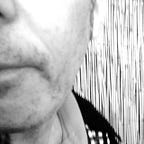The joke’s on us
Nick Cave’s greatest talent has always been the art of self-mythology
I’ve never been able to understand the deification of Nick Cave, and after watching 20,000 Days on Earth, the remarkable film about his life, I’m even more confused.
It’s a brilliant 90 minutes of film-making, splicing together fact and fiction in a mock-documentary format, purporting to unpick the engima that is Nick Cave, immersively entertaining . . . I loved it as a film . . . but at the end of it, I was left wondering why does Nick Cave merit such attention?
Nothing I saw on the screen changed my long-held opinion of Cave: in the film he comes across as humourless, pretentious, self-absorbed, and of moderate talent. By far the more interesting character in the film was Cave’s regular musical collaborator Warren Ellis, who stole virtually every scene he was in, either cooking a shared meal in his little seaside cottage, telling hilarious stories about Nina Simone, or coaxing haunting melodies out of a Korg synthesiser or a Fender guitar.
What am I not seeing that others see?
Cave has been part of the public consciousness for close to four decades, and in his native Australia and adopted England he is regarded as some kind of living treasure in both countries. He’s recorded multiple albums, written a couple of books, scripted several movies. His work ethic and output is phenomenal.
With a group of other misfits from Caulfield Grammar, he sprung from the post-punk scene centred around St Kilda in the late-70s with the Boys Next Door and the Birthday Party, putting out a couple of semi-musical albums before moving to London and Berlin where he managed a raging heroin habit while writing his novel And The Ass Saw The Angel (about which the less said the better). With the revolving cast of musicians who make up the Bad Seeds, he has churned out albums which rarely fail to please the critics.
But why is he so feted? To criticise — nay, even question — Saint Nick’s genius is to be viewed as almost blasphemous. Why?
Perhaps I’m just jealous…
Granted, he has an expressive baritone voice and a passably charismatic stage presence but to these ears, Cave’s music has always been derivative and bombastic, his lyrics repeatedly drawing on hackneyed gothic imagery or phrases ripped out of the Bible, the music veering between forced melodrama and mawkish sentimentality. After all these years, his lyrics seem to have barely progressed beyond the crude poetry he was writing as a 17-year-old Grammar school student to get into private school girls’ underwear.
There is little insight into the human condition in his songs, nor much curiosity about the world at all. I get the sense that while Cave has left a trail of human misery behind him over the years, he hasn’t suffered much. He’s not even an enigma . . . he’s just not that interesting.
Curiously, he’s regarded as the thinking woman’s piece of crumpet. Yet a close study of his lyrics may discover they have an undercurrent of sexism and violence towards women that from anyone else would find him accused of misogyny.
But Nick Cave does have an unquestionable talent at one thing, and that has always self-mythologising. 20,000 Days on Earth fulfills that function, and without any apparent irony, a fair chunk of time in the film is spent watching Cave go through his personal archive of photos and papers, furthering the myth on the spot.
From the get-go, Cave wanted to be famous and I suspect that privately he has been having a great laugh at his acolytes for a couple of decades now. It’s all an act, you see. He’s been taking the piss, and he can’t believe that three decades after he started out, his fans are still falling over themselves in awe at his brilliance.
It’s always been act, from the sharp suits and jet black hair to the legendary drug habit (he’s the best preserved long-time junkie I’ve ever seen).
But I also suspect that the other part of the reason why Cave is held in such incomprehensible esteem is due to that old Australian cultural cringe: because Cave has based himself overseas for most of his adult life that somehow that makes him a greater artist than those who have built their careers here. Several years ago, I had a drunken argument with a friend about who was the more important figure in recent Australian music history: the urbane exile Cave, or the ragged, determinedly local Tim Rogers. I’ll take Mr Rogers every time.
So now, as the Bad Seeds release another album and prepare for a triumphal homecoming tour in the new year, brace yourself for the ‘Nick is a genius’ statements to do the rounds one more time.
The tour will be a sell-out, the reviews will be overwhelmingly positive, and once again the joke will be on us.
